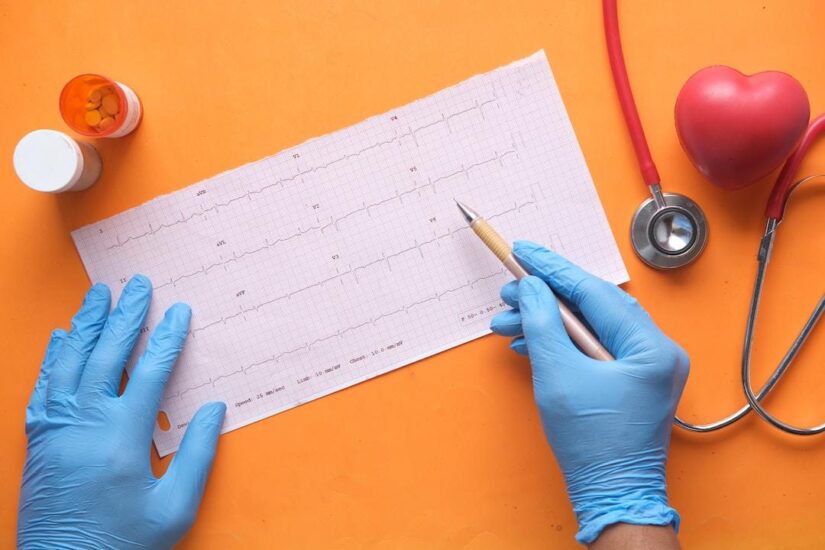The Surprising Connection: Can an Auto Accident Trigger a Heart Attack?

Vehicular accidents are not only traumatic experiences but they can also have far-reaching effects on victims’ physical health, including their hearts. While broken bones and cuts are evident injuries, an auto accident may also be a catalyst for serious cardiac events such as a heart attack. Understanding the potential health repercussions of auto accidents could save lives. Below, we explore how accidents can potentially lead to heart attacks and what steps should be taken if you suspect you are experiencing cardiac distress post-incident.
Seeking Medical Attention: What to Do After an Accident

Immediately following a car accident, it is imperative to assess not just visible injuries but also be vigilant about less obvious conditions, like those affecting the heart. Even if you feel fine initially, it’s advisable to visit a doctor or an emergency room to be sure there are no latent injuries—cardiac or otherwise.
Post-accident, obtaining a thorough medical examination is a solid step in preventive care. Discuss any concerns with your healthcare provider, highlighting any personal or family history of heart disease. Consulting a specialist, and finding out how to choose a cardiologist in Los Angeles, could provide tailored, expert advice regarding your cardiac health post-accident. A cardiologist specializes in diagnosing and treating heart conditions, and they can assess any long-term effects the accident may have had on your cardiovascular health. They may recommend various tests and procedures such as electrocardiograms, stress tests, and echocardiograms to evaluate the heart’s functioning and identify any abnormalities.
For those involved in a more serious crash, legal advice may also be necessary. Issues stemming from auto accidents can be complicated, especially when coupled with health concerns. Seeking a lawyer like this truck accident lawyer in Albert Lea, MN can enable you to navigate the aftermath of an accident with informed guidance. A personal injury lawyer can protect your legal rights, gather evidence, negotiate with insurance companies on your behalf, and maximize your compensation. By seeking professional advice and representation, you can focus on your recovery while knowing that your case is in capable hands.
Understanding the Link Between Auto Accidents and Cardiac Events
An abrupt collision can cause more than just immediate physical injuries; it has the potential to put extreme stress on the body. This stress can trigger a cascade of biological responses that may compromise heart health. For those with preexisting cardiovascular conditions, the abrupt jolt and the stress of an accident can exacerbate underlying issues, possibly leading to a heart attack. The body’s response to a car accident involves a surge of adrenaline and other stress hormones. These chemicals increase heart rate and blood pressure, which can strain the cardiovascular system, particularly in those already at risk for heart disease.
In cases of a severe crash, the physical trauma itself can directly damage the heart or surrounding blood vessels. Blunt chest trauma can lead to cardiac complications such as contusions or ruptures, which might be mistaken for less serious injuries. Therefore, it is important to investigate heart health following any impact.
Additionally, emotional stress associated with the aftermath of an auto accident can contribute to the risk of a cardiac event. Long-term anxiety and post-traumatic stress disorder (PTSD) from the collision can harm heart health over time, demonstrating the deep connection between mental health and cardiovascular well-being.
The Long-Term Cardiac Implications of Severe Car Accidents

The long-term cardiac implications of a severe car accident should not be underestimated. After an initial recovery period, you need to maintain regular medical check-ups. This is critically important for those with pre-existing heart conditions or those who have experienced significant stressors or trauma from the accident. Over time, the stress response from a major accident can continue to affect heart health.
Persistent anxiety and stress can lead to increased blood pressure and cholesterol levels, which in turn can elevate the risk of future cardiac events. This underscores the importance of long-term care and stress management strategies. Patients may also experience lasting psychological effects like PTSD, which can have further implications for cardiac health. Seeking support from mental health professionals, alongside adhering to a heart-healthy lifestyle, can mitigate these risks and promote overall well-being.
As this article demonstrates, the relationship between auto accidents and the risk of heart attack is complex and multi-faceted. It warrants attention to immediate and long-term symptoms, regular medical care, and possibly legal advice to ensure all bases are covered in the recovery process. Understanding and addressing these risks is essential for protecting one’s health after a traumatic event on the road.








Comments are closed.